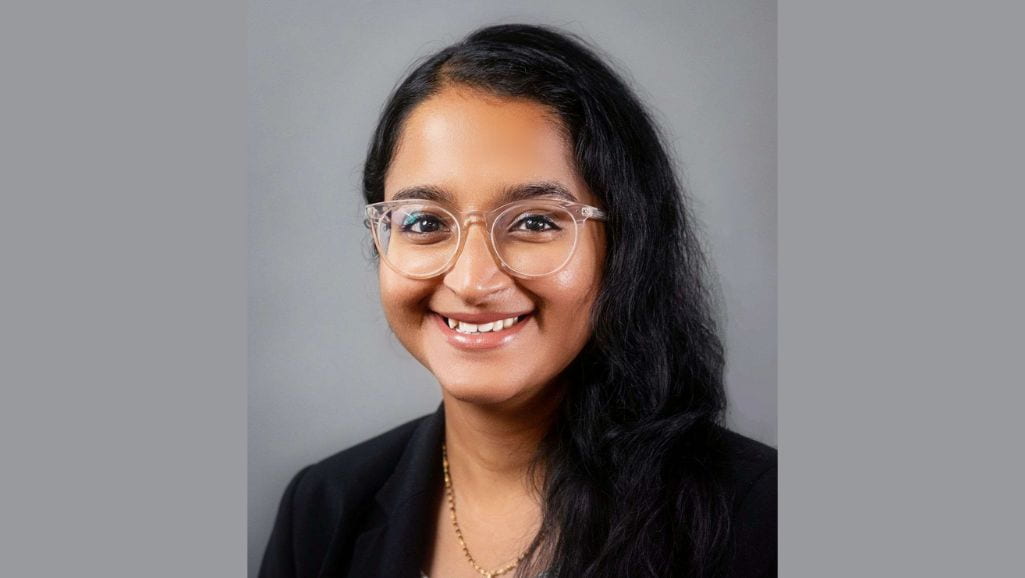Congratulations to Dedeepya Konuthula on receiving a C3EN minigrant for Community Health Worker Perspectives on Healthy Lifestyle Counseling and Weight Stigma, a project that integrates community health workers into the care of patients with elevated weights.
Dr. Konuthula is a first-year primary care research fellow in the PITCH (Primary care Investigators Training in Chronic disease & Health disparities) fellowship at the University of Chicago’s Center for Chronic Disease Research and Policy. She received her undergraduate degree in Neuroscience from Dartmouth College and completed medical school at Yale followed by residency in Internal Medicine and Pediatrics at University of Pittsburgh Medical Center. She loves providing primary care to both children and adults. She is interested in health policy and community-partnered interventions to prevent, identify, and manage cardiometabolic risk beginning in childhood and adolescence in order to decrease cardiometabolic disparities later in life. She is interested in learning which policy changes could be most effective in addressing the many structural and social determinants of health that influence the obesogenic environment as well as exploring how we can communicate with families about these issues in a way that promotes health behavior change without centering weight and reinforcing weight stigma.
How did you become interested in health equity?
Although my desire to be a physician has always been intertwined with my motivation to advocate for an equitable society with a robust social safety net, I didn’t always see research as my path to that advocacy. This changed in the spring of 2017 when “Racial Disparities in Medical Student Membership in the Alpha Omega Alpha Honor Society” was published by Boatright et al in JAMA Internal Medicine. This study demonstrated that Black and Asian medical students were less likely than white students to be selected for AΩA after adjusting for a broad variety of other metrics. Dr. Boatright and his colleagues took a disparity that was unsurprising to many students from marginalized backgrounds and made it concrete and undeniable to their peers and institutions. This study received significant press and led to some schools suspending AΩA while many others critically reviewed and revised their selection criteria and processes. I was a medical student at the time, and I was really inspired to witness in real-time how research could help move us toward equity.
How did you become interested in your C3EN minigrant research topic?
Staggering health disparities that continue to limit the health of marginalized patients offer clear proof that our healthcare system in its current form is failing the patients who need it most due to excessive barriers and limited resources. As a primary care physician at my Internal Medicine-Pediatrics residency continuity clinic outside of Pittsburgh in Turtle Creek, PA, I was constantly reminded that we served communities with high levels of poverty and low levels of educational attainment and socioeconomic stability — communities which have been impacted by systemic racism and other overlapping systems of oppression. So little of the care that my patients truly needed was a prescription that I could write compared to financial and logistical support and connection to resources that could help with the many structural and social determinants of health that impacted their lives more directly and immediately than some of their medical conditions. While I cared for many patients of all ages whose BMI met criteria for “overweight” or “obesity,” I was torn each time between the inherent complexity of this issue and the fear that not intervening to decrease cardiometabolic risk in marginalized patients could harm their future health – particularly given that:
- BMI didn’t tell the whole story of an individual’s cardiometabolic risk.
- Even if I identified an individual at elevated risk, I didn’t always have a great solution to offer that would effectively address the many factors that comprise the obesogenic environment for each individual.
- It was critically important to discuss this issue in a sensitive way that didn’t reinforce weight stigma.
In addition, there were many limitations inherent to the busy primary care clinic environment that made this even more difficult, including having many issues to discuss during a short appointment and needing to establish continuity and trustworthiness before addressing a topic that has almost certainly been a source of judgment and stigma in the past.
When I met Dr. Marcia Tan early in my fellowship, I was really intrigued by her prior work adapting an evidence-based tobacco cessation curriculum for community health workers (CHWs) to empower them in addressing tobacco cessation with their clients as a way of addressing disparities in commercial tobacco use. We became interested in conducting focus groups to learn more about how CHWs address weight and healthy lifestyle with their clients because we hypothesize that CHWs could be instrumental in helping to facilitate healthy lifestyle changes as well as helping to address some of the social determinants of health that influence the obesogenic environment — within a trusted relationship and without some of the constraints found within a primary care clinic.
How does your C3EN minigrant project fit into your broader research?
We aim to use what we learn through these focus groups to develop a curriculum to better prepare CHWs to have sensitive conversations about weight and healthy lifestyle with adolescents and families using non-stigmatizing and strength-based language and informed by updated evidence about the obesogenic environment. More broadly, I’m interested in how we can communicate with families both inside and outside the clinic about the issue of cardiometabolic risk in a way that promotes healthy behavior change without centering weight and reinforcing weight stigma. I’m also interested in gaining the training and expertise needed to propose, study, and advocate for policy changes which could intervene on the obesogenic environment to improve public health.
Learn more about Dr. Konuthula and other C3EN minigrant awardees!

